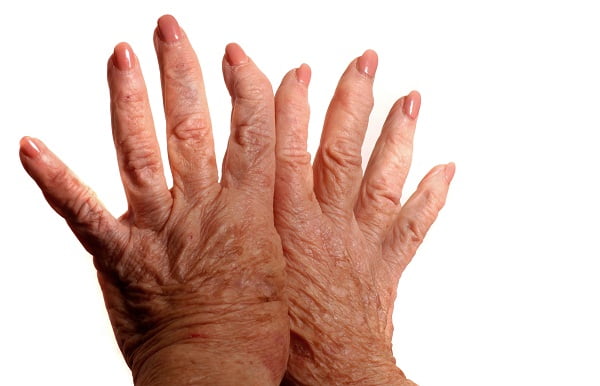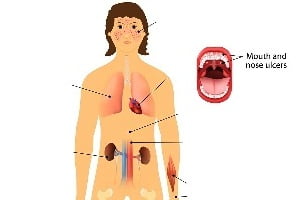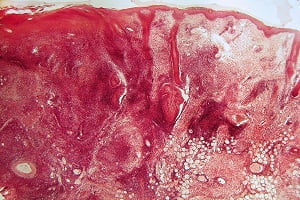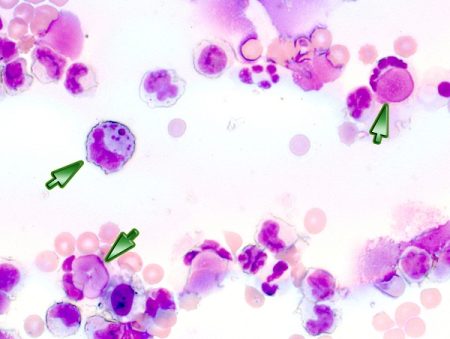What Are the Symptoms of Lupus?
- Updated on: Jun 29, 2024
- 4 min Read
- Published on Oct 3, 2019


Lupus is an autoimmune disease that occurs when your body’s immune system starts attacking its own healthy cells. With lupus, the immune system is not able to distinguish between self-cells and foreign particles. It is a chronic inflammatory disease that can affect any part of the body including lungs, heart, skin, scalp, kidney, brain and blood cells. Read more about lupus.
Lupus Signs and Symptoms
At times lupus is difficult to diagnose as most of its symptoms resemble typical symptoms of skin diseases. Lupus affects everyone differently and shows a wide variety of symptoms. These symptoms may vary from person to person. Some people show mild symptoms while others may show more severe symptoms. Lupus symptom starts during adulthood and are more common in people of age group 15-40 years.
Early symptoms of lupus mimic many other diseases and having these doesn’t mean a person is suffering from lupus. Some common symptoms include:
- Tiredness and Fatigue
- Unexplained Fever
- Swollen joints
- Dry mouth and eyes
- Hair loss
- Rash (Typically on face) and abrasions
- Photosensitivity
- Pulmonary problems
- Kidney problems
- Gastrointestinal problems
- Thyroid problems
The above-mentioned symptoms are described in detail as follows:
Fatigue and Tiredness:
This is the earliest symptom of lupus and 90% of the people suffering from lupus experience tiredness and low energy at some point or level. Some fatigue can be treated with energy medicines and by taking a nap in a day. However, sleeping for a long duration in daytime is not recommended by doctors as it would lead to insomnia in the night. A person should stay active and stick to routine work to keep up with energy level. Consult a doctor if you are not able to cope up with daily tasks.
Unexplained fever
A low fever somewhere between 98.5?F (36.9?C) to 101?F (38.3?C) is another early symptom of lupus. The fever is apparently for no reason. As the fever is not so high, a person may not think of seeing a doctor. However, a low-grade fever could be a symptom of possible inflammation or infection resulting in a quick flare. People with lupus may experience this type of fever intermittently. If you have a recurring low-grade fever, you should see a doctor.
Swollen joints
Swelling of joints can cause pain and stiffness. Joint inflammation is more usual in the morning. The swelling may be mild initially but becomes obvious gradually. Just like other symptoms of lupus, joint swelling may also come and go. A person should refer a doctor if pain medications are of no help. Sometimes, joint pain may be due to some other disease like arthritis, so consulting a doctor or physician is important.
Dry mouth and dry eyes
A person suffering with lupus may experience dry mouth and dry eyes. This is because a person with lupus, sometimes develop another autoimmune disorder called Sjogren’s disease. This disease results in malfunctioning of glands responsible for tears and moisture in eyes. Some women with lupus as well as Sjogren’s disease also experience dryness of the vagina.
Hair loss
Hair loss is a result of inflammation of skin and scalp and is often the first symptom of lupus. Thinning of hair starts first which is followed by hair loss as a clump. Often, hair thins out slowly. Some people also have thinning of beard, eye lashes, eye brows and other body hairs. Hair becomes quite brittle and breaks very easily. They appear ragged and are called “Lupus Hair”. After treatment, hair may re-grow except for the areas where lesions/abrasions were developed.
Rash and abrasions
The appearance of a butterfly shaped rash over the nose bridge and on the both cheeks is the most visible symptom. About half of the people suffering from lupus have these rashes. Rashes or abrasions may appear suddenly after exposure to sunlight. Flares-up may sometimes induce this rash which is not itchy. It is seen in most but not all reported cases of lupus.
Pulmonary issues
Pulmonary complication is another possible symptom of lupus. Your lungs become inflamed and in severe cases, swelling may extend up to blood vessels in lungs. Sometimes, diaphragm may be affected. This can lead to chest pain while breathing and is often referred as “pleuritic chest pain”. With time and treated lupus, the size of lungs shrinks. The condition is also known as Vanishing (or shrinking) lung syndrome, and is characterized by chest pain and difficulty in breathing.
Kidney inflammation
Nephritis or commonly known as kidney inflammation is seen in people that suffer from lupus. As a result of inflammation in kidney, it becomes difficult for kidneys to filter toxins and wastes from the body. Nephritis generally begins after five years of untreated lupus. The person urinates more frequently at night and has swelling in lower legs and feet. Darker urine with some amount of blood is a sign of inflammation of the kidney. Monitoring of kidney function is recommended by doctors after diagnosis.
Gastrointestinal problems
Some people may experience gastrointestinal problems like acid reflux, indigestion and heartburns. Mild symptoms can be treated with over-the-counter medicines or with antacids. If the symptoms are frequent, you should cut down the size of your meal and avoid caffeinated drinks. If still the symptoms continue, consult a doctor.
Thyroid problems
People suffering from lupus commonly develop Thyroid disorder. The main function of the thyroid is to control the metabolism of the body. Thus a poor functioning thyroid may result in loss or gain of weight. Also, it can affect vital organs like your brain, heart, kidneys, and liver. Overactive thyroid (hyperthyroidism) results in weight loss and underactive thyroid (hypothyroidism) results in weight gain.
Other Signs and Symptoms of Lupus
The list of possible symptoms of lupus is lengthy and varies from one person to another. Some new symptoms may appear and go. Apart from above-mentioned symptoms, there are some other signs that may help a doctor for better diagnosis and treatment. Some of them are:
- Oral ulcers
- Photosensitivity
- Dizziness and confusion
- Seizures and headache
- Muscle pain
- Depression
- Whitening of finger tips and toes when exposed to cold
When to see a doctor?
Consult a doctor immediately if a person:
- develops a rash after exposure to sunlight
- has a frequent unexplained fever
- is feeling constantly tired and feels chest pain while breathing
- has frequent gastrointestinal issues
- urinate frequently with a small amount of blood in it
Your doctor will examine the symptoms and recommend a treatment plan. Read about lupus treatment.












